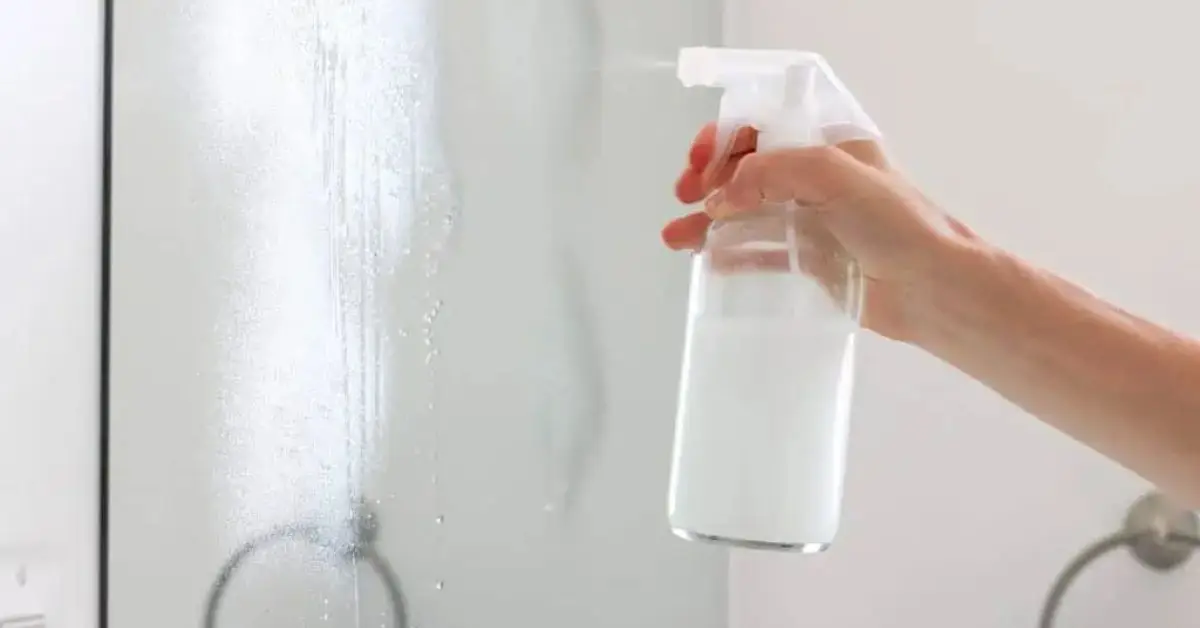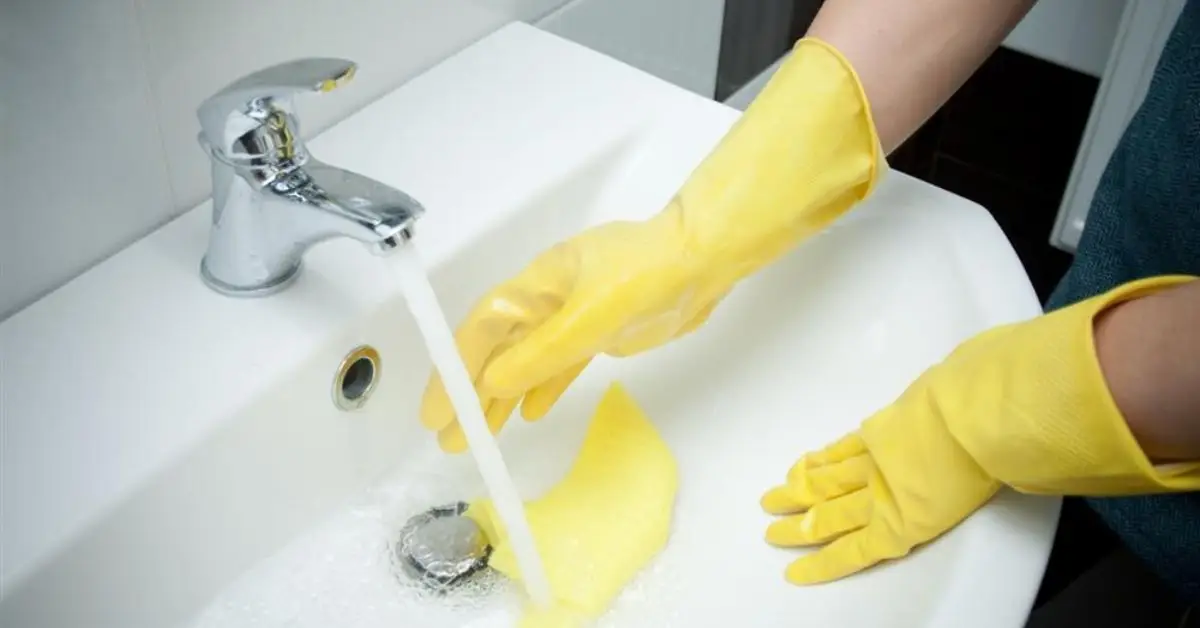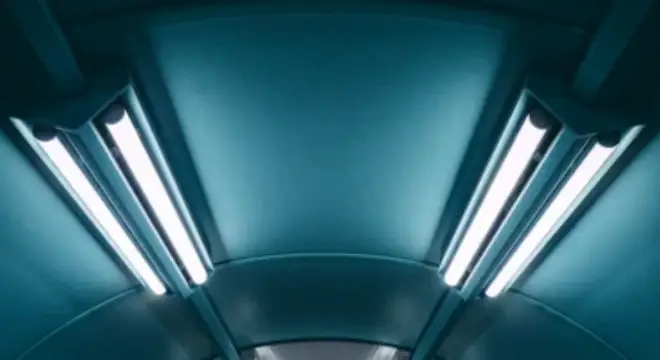You Won’t Believe How Easy These 5 Hard Water Cleaning Tricks Are
I’ll be honest with you—hard water stains drove me crazy for years. I’d scrub the shower glass, polish the faucets, even buy those “miracle cleaners” everyone swears by, only to see the white, cloudy spots return within days. If you’ve ever wiped your bathroom down and still felt like it looked dirty, you know exactly what I mean.
The truth is, these stains aren’t just dust or soap—they’re mineral deposits baked on by every drop of water that dries in place. That’s why a quick wipe never lasts. What finally changed things for me was learning the right tricks: fast hacks when you’re short on time, deeper methods for stubborn build-up, and small habits that keep the stains from coming back in the first place.
Have you ever tried a “magic solution” that didn’t work, or are you still searching for the one fix that finally does the job?
Why Hard Water Stains Keep Coming Back
If you’ve ever wiped your shower door or polished a faucet, only to see that same cloudy film creep back within days, you know the frustration. Hard water stains aren’t simple dirt — they’re mineral deposits, mostly calcium and magnesium, that stick like glue when water droplets dry. Add soap residue, and you’ve got the perfect recipe for stubborn spots.
Here’s why the usual wipe-down doesn’t cut it:
- Surface-level cleaning doesn’t dissolve minerals, so the stains return fast.
- Over-scrubbing can scratch glass or steel, leaving them even more prone to spotting.
- And the big myth? Vinegar isn’t the only answer. It works on some surfaces but can actually damage natural stone or delicate finishes if used too often.
Understanding what causes these stains makes the fixes make sense. The minerals in hard water crystallize as the water evaporates, which is why simple wiping never lasts.
Quick Fixes for Busy People (2-Minute Hacks)

I know how it feels when guests are on the way, and you don’t have time for a full bathroom scrub. That’s when quick hacks save the day. They won’t cure the problem forever, but they’ll make your space look clean and fresh in minutes.
Here are three of my go-to tricks:
- Vinegar spray for glass and mirrors: Mix equal parts vinegar and water in a spray bottle. Spritz, wait a minute, then wipe with a microfiber cloth. It cuts through haze quickly.
- Lemon slice rub for faucets: Take half a lemon and rub it directly over taps or handles. The citric acid eats away at the buildup while leaving a natural shine.
- Dryer sheet trick for shower doors: Lightly dampen a used dryer sheet and wipe your shower glass. The texture scrubs gently, and the softener helps polish away spots.
And here’s something I love about real-world cleaning hacks: everyday people test and share what actually works. For example, one Reddit user in r/CleaningTips swears by a DIY mix of Dawn dish soap and vinegar spray to cut through heavy stains — followed by Rain-X to keep the glass clear for weeks. Another clever tip from r/lifehacks shows how tying a vinegar-filled bag around a faucet or shower head overnight dissolves even the toughest buildup.
These aren’t permanent fixes, but when you’re short on time, they work like a charm. Plus, they’re cheap, safe, and easy enough for anyone to try. You’d be surprised how many everyday things lying around your home can double up as cleaning tools — in fact, some of the most powerful cleaners are items you probably already own 5 Household Items You Didn’t Know Were Powerful Cleaners.
Deep Cleaning Methods That Actually Work
Quick fixes are great when you’re in a hurry, but sometimes stains are so baked-in that only a deep clean will do. The good news? You don’t need fancy tools—just a little patience and the right method for the right surface.
- Baking soda paste for sinks and tiles: Mix three parts baking soda with one part water to form a paste. Spread it over the stained area, let it sit for 15 minutes, and scrub with a non-scratch sponge. The gentle abrasion lifts deposits without damaging the surface.
- Commercial cleaners (CLR, Lime-A-Way): These heavy-duty cleaners are designed to break down calcium and lime fast. They’re lifesavers for really stubborn spots, but they do come with trade-offs. On the plus side, they work quickly and save elbow grease. On the downside, they can be harsh, with strong fumes, and aren’t safe for every surface. Always check the label before using.
- Safety warning: Avoid acids (vinegar, lemon, commercial descalers) on natural stone countertops like marble or granite. Acids can etch the surface, leaving permanent dull spots. For these materials, stick to pH-neutral stone cleaners.
These deeper methods take more effort than a quick spray, but they’re the difference between “looks okay” and truly spotless surfaces. According to Good Housekeeping, even professionals recommend baking soda as a safe, reliable base for most hard water problems.
The 5 Proven Ways to Remove Hard Water Stains

After years of trial and error, I’ve narrowed it down to five methods that consistently work. Each one has its own sweet spot depending on the surface and severity of the stains.
- Vinegar soak (glass, faucets): Soak paper towels or a cloth in vinegar, press them against the surface, and leave for 20–30 minutes. Rinse and wipe clean. Perfect for shower heads, faucets, and glass. If streak-free glass is your main battle, there’s a simple method using dish soap that works wonders — check out these 5 Simple Steps to Clean Your Windows Without Streaks for a quick guide.
- Baking soda scrub (sinks, tubs): Sprinkle baking soda directly on the surface, dampen with water, and scrub. It’s mild but effective on porcelain and ceramic.
- Lemon + salt combo (shiny metals): Dip half a lemon in salt and rub it over chrome or stainless steel. The acid and abrasion together break down stains while restoring shine.
- Commercial product (for stubborn buildup): Use CLR or Lime-A-Way when natural methods fail. Always test a small area first and follow the safety instructions on the label.
- Magic eraser & dryer sheets (last-resort hack): A damp magic eraser can buff away cloudy spots on glass. Dryer sheets also work as a gentle scrub for soap scum and hard water film.
With these five methods in your back pocket, you’ll always have the right fix for the right surface—whether it’s a fast touch-up or a weekend deep clean.
Prevention Is Easier Than Cure
Once you’ve finally managed to scrub away hard water stains, the last thing you want is for them to creep back a week later. That’s why prevention is the real game-changer. A few small habits can save you hours of scrubbing down the road.
- Install a water softener or filter: This is the most reliable long-term fix. By reducing the calcium and magnesium in your water, stains form far less often. It’s an upfront investment, but if you’re constantly fighting spots, it pays for itself in time and effort saved.
- Squeegee after every shower: It sounds tedious, but it takes less than a minute. Running a squeegee over your glass doors stops droplets from drying in place, which means no deposits left behind.
- Wipe faucets with a microfiber towel: A quick wipe once a day keeps fixtures shiny and stops minerals from hardening into crusty rings. Microfiber works best because it grabs residue instead of smearing it.
- DIY daily spray: Mix equal parts vinegar and water in a spray bottle. Keep it handy in the bathroom and give surfaces a light mist after use. It breaks down any early buildup before it has a chance to harden. Sometimes the best solutions come from unexpected places — even a bottle of shampoo can pull double duty in your cleaning routine, as shown in these 7 Household Hacks You Must Try.
These small steps don’t just keep your home looking fresh—they make sure you’re not repeating the same exhausting cleaning cycle over and over. A little prevention today means you won’t dread scrubbing tomorrow.
Are you more likely to stick to quick habits like a daily squeegee, or would you rather invest once in a water softener and forget about the problem?
Final Takeaway — Choose the Right Fix for Your Surface
When it comes to hard water stains, there’s no one-size-fits-all answer. The right method depends on your surface and your situation:
- Quick fixes are perfect when you’re short on time and just want the space to look clean before guests arrive.
- Deep cleaning methods are worth it for stubborn buildup that’s been sitting for weeks or months.
- Prevention habits save you the most effort in the long run, keeping stains from coming back at all.
No matter which option you choose, always test a small, hidden area first—especially with acids or commercial products. And don’t feel locked into one approach; often, the best results come from mixing natural and commercial methods based on your budget, the surface, and how much time you have.
Now I’d love to hear from you: Which method do you rely on most—quick hacks, deep scrubs, or prevention tricks? Share your experiences in the comments below.
And if you’re looking for more practical home care guides, visit Build Like New for tips that actually work in real life.
Disclaimer: Cleaning methods can react differently depending on the material and product used. Always test on a small, hidden area first and follow manufacturer guidelines for surfaces and cleaners.


